#Blackfoot Indians
Explore tagged Tumblr posts
Text

BlackFoot Indian
#blackfoot indians#aboriginal indians#melanin#black history#black people were here before columbus#eugenics#walter plecker#dane calloway#2pac shakur
20 notes
·
View notes
Text
It was Indigenous People's Day so I made some intersex + Indigenous flags
Since I've been on a roll in making intersex flags. First: flags for the three major types of Indigenous groups whose lands were stolen to create the country I live in (Canada):
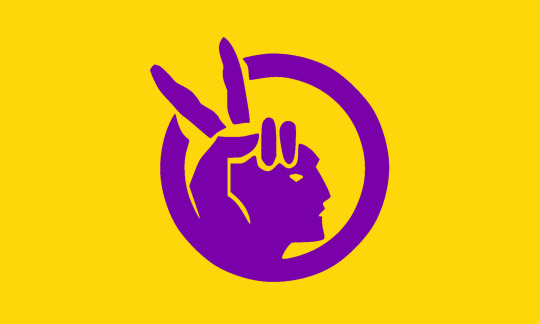
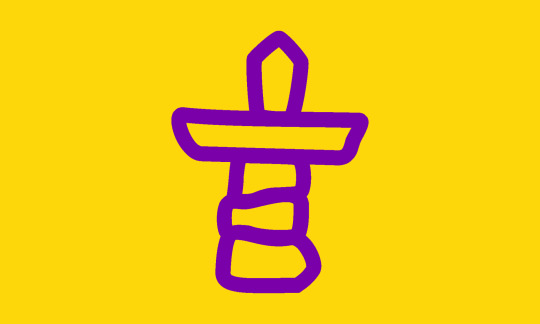
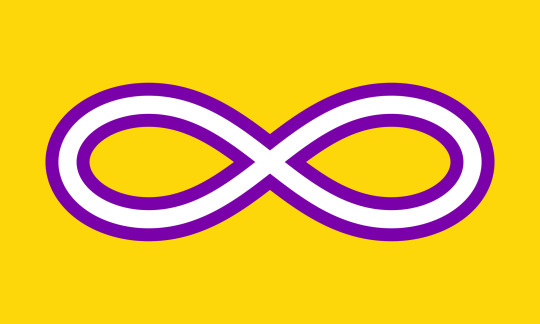
Left: intersex and First Nations (American Indian Movement) Middle: intersex and Inuit Right: intersex and Métis
Then I made some intersex flags for some specific First Nations whose cultures I have at least basic familiarity with: Left: Haida ................... Middle: Huu-ay-aht ......... Right: Musqueam
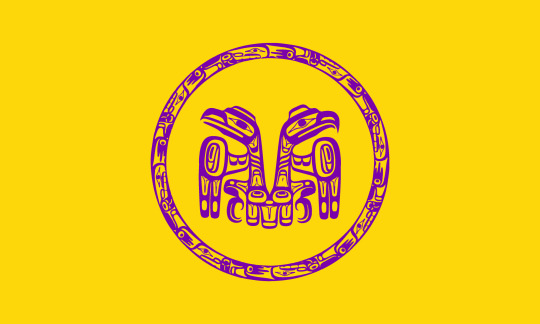
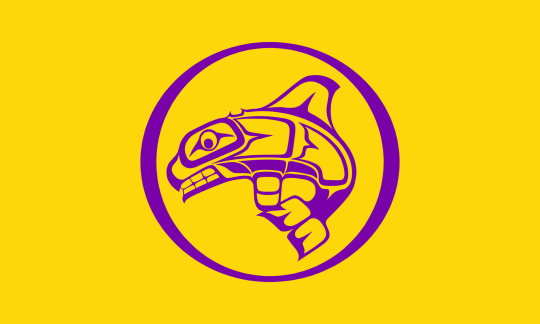


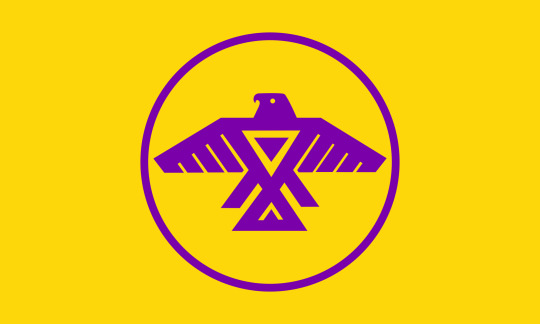
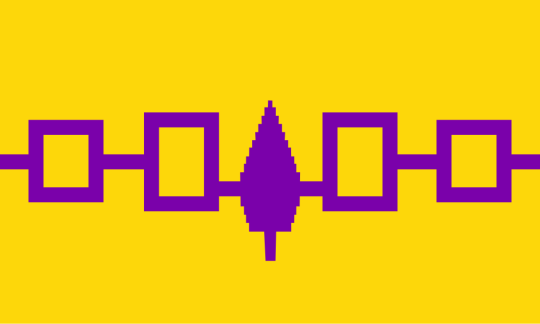
Left: Blackfoot ........... Middle: Anishinaabe ...... Right: Haudenosaunee
Note: The last three are confederacies of multiple nations. Order is based on geography, going west to east.
Personal Note: I am a settler and am not a member of any of these nations. I've moved many times in my life, and these nations are the rightful stewards of the lands that I personally feel I have the most connection to. 💜
Tagging for archival: @intersexflags @varsex-pride @radiomogai @beyond-mogai-pride-flags
#intersex#actually intersex#indigenous peoples day#fuck thanksgiving#indigiqueer#intersex flags#american indian movement#inuit#metis#haida#huu-ay-aht#musqueam#blackfoot#anishinaabe#haudenosaunee
310 notes
·
View notes
Text

Honor shirt with glass beads and horse hair. United States, Blackfoot Confederacy, 1880-1910
Much of the regalia worn by men reflected their position within political, military and religious societies. Only recognized leaders could wear shirts like this one, trimmed with human hair or horsehair. Hair locks, whether a gift of allegiance or taken from an enemy or an animal, embodied personal honour. While First Peoples dress has adapted to changing times, regalia remains an important emblem of personal achievement and honour.
#mccord stewart museum#reddit#artefactporn#munakatasennin#honor shirt#shirt#glass beads#horse hair#united states#blackfoot#blackfoot confederacy#1880s#1890#1900s#1910#american indian#first peoples#native american#indigenous
16 notes
·
View notes
Text
Have you read...

Seamlessly blending classic horror and a dramatic narrative with sharp social commentary, The Only Good Indians follows four American Indian men after a disturbing event from their youth puts them in a desperate struggle for their lives. Tracked by an entity bent on revenge, these childhood friends are helpless as the culture and traditions they left behind catch up to them in a violent, vengeful way.
submit a horror book!
#The Only Good Indians#Stephen Graham Jones#horror books#horror#bookblr#books#horrorbookpoll#thriller books#indigenous horror#native american#native american horror#blackfoot
19 notes
·
View notes
Photo
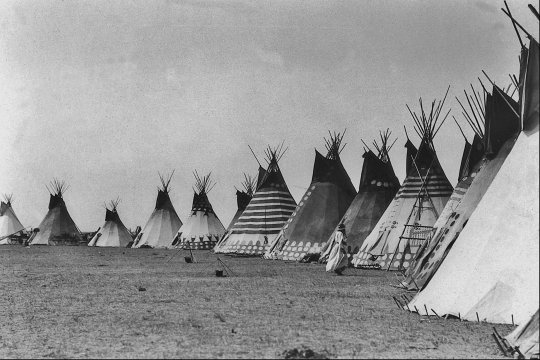
Campamento Pies Negros en Alberta (Canadá). Fotografía tomada por Arthur Rafton-Canning alrededor de 1910.
#blackfootindian#blackfoot#blackfeet#blackfoot tribe#blackfoot nation#black feet nation#natives#native#native american#Native America#Nativo#nativos#nativo americano#nativoamerica#Nativos Americanos#american indian#American Native#nativeamericans#american natives
20 notes
·
View notes
Photo

'Digging for the Red Roots' by Mahir Adal-Razzaaq El — “Native American contact with Islam began over one thousand years ago...”
#islam#pre columbian#america#american indians#indigenous tribes#indigenous people#moors#moorish#treaties#american history#cherokee#blackfoot#indian muslims
26 notes
·
View notes
Text

"Hardy Women Warriors Inherit Skill, Stamina of Ancestors," Toronto Star. October 30, 1943. Page 2. --- ADVANTAGE of inherited ability is held by Private Minnie Spotted Wolf, when she picks up a bow and arrow on the archery range at the New River, N.C., army camp.
OF A SEAFARING RACE, these Norwegian "Wrens" were right at home during recent exercises taken aboard the destroyer Glaisdale, and none complained of sea-sickness.
#minnie spotted-wolf#wrens#royal norwegian navy#united states marine corps#world war ii#women at war#women in uniform#blackfoot confederacy#siksika#american indians#indigenous people#indigenous history
5 notes
·
View notes
Text

Blackfoot Indians on the roof of the Hotel McAlpin, New York City, 1913. They had the choice of any room in the hotel but instead chose to sleep on the roof. Many had never left the reservation and New York must have been quite a sight. ❤
--thanks to US History, Calvin John Williams
6 notes
·
View notes
Text
After hearing about peoples idea about reparations based on their definition, the only people really deserve reparations are the planes Indian tribes (Cheyenne, Blackfoot, Crow,Sioux, Lakota,Comanche and other Plains Indian tribes) because their lifestyle was harmed by the US government involvement and forced living style of the reservation.
Plaines Indians moved with their food, which was bison. They often traveled with their food traveled. They were forced reservations of life was completely changed. Not only did the bison get hunted to extinction, but they were forced to be in one spot. Lives in lifestyles or in a way that was normal for them to be in one spot for all of their life. They were forced to reservations in the Blackfoot tribe, especially were hit with a famine at the time where most of the tribe ended up dying from starvation and there was nothing they could do about it because that was the only land they were allowed to be on freely and not only that, but they were forced to be dependent on the US government for a lot of their food which unfortunately got taken advantage of the service people meant to be helping them, but just took advantage of them instead sometimes.
But that wasn’t even the worst worst thing the schools were probably the worst thing to happen to them because after being forced to be in that spot a few years later, they were forced to have their children taken from them at young ages like almost 8 years old these boarding schools to wear horrific things happened to them and they got sick and sometimes they would even die and never see their parents ever again💔
Most tribes lived in one area and stayed in that one area, the planes Indians, however, did not so according to the definition of reparations and who deserves it: the people who lives were affected by the decisions of “white people” it would be them. They’re the only people who literally were not only damaged physically but emotionally and their lifestyle so much so that it ended up giving them bad habits and behaviors that still exist to this day. Their diets are not the healthiest, because of the ration food of sugar and milk they barely even had on those reservations(fry bread) and because of that their health is dangerously bad, I mean it’s no different than the way most Americans most Americans or obese and overweight and have health issues due to their diet but that was something that was affecting them from over 100 years ago our diet recently got terrible 60 to 70 years ago. Their lives have been drastically affected in those effects still being true today.
Things aren’t racially motivated as they were then I think greedy people just take advantage of the fact that they’re not really talked about or paid attention to group the way. Black and Hispanics are in the country. I mean anybody who’s not really displayed in mainstream media to a nauseating degree doesn’t really have most peoples attention in America. And that goes for the world too those commercials about those starving kids in Africa didn’t appear on our TV screens how many people would know about it? (NONE!)
So before people start rushing to the federal reserves office to get a check, they don’t deserve. They should really fact check history and make sure that they understand that not everybody’s lives were affected the same way in the same time. Blacks were successful before during and after slavery. Whether they had education or not, they found a way to make a life for themselves.
#plains Indians#reparations#balck Americans#Indian Americans#native Americans#America#us government#USA#United States#United States of America#Blackfoot#Black Foot Tribe#Buffalo#american buffalo#Plains#Indian reservations
0 notes
Text

May 29, 2024:
This is my second readthrough because it's the Last Words Book Club pick. And it's weird, because this time I understand it more but also I like it less?
I don't think it's bad or anything. First time around I was soooo enthusiastic about it because it was so different from everything else I was reading. But since this has influenced the trends and -arguably- my tastes, it's less exciting now. Paradoxically, I think that's a good thing!
Experiencing this again has given me room to explore some theories and test out some interpretations so I guess that makes it worth a second go.
6/10 #WhatsKenyaReading
#whatskenyareading#books#reading#library#horror#audiobook#murder#the only good indians#elk#elk head woman#deer woman#shapeshifter#blackfoot#guilt#native american#indian#american indian#indigenous
0 notes
Text

youtube
Mystic palm, gem and tarot
A few escape your magic arrow
I saw you reel them in for miles
Each captivated crooked smile
And you know you can heal them all
#timber timbre#timbre#timber#zürich#borchert#japan#swotzerland#congo#magic arrow#guitar#riff#wild#west#blackfoot#indians#resident#autism#mind#good#doctor#pale#horse#Youtube
0 notes
Text
Here is a brief summary of what is happening in Wikipedia right now:
In the last few years (3-4 years) the WikiProject Indigenous peoples of North America, which was originally created to improve the quality and coverage of native issues and native articles on wikipedia, has been hijacked by a small number of users with an extremist agenda. They have been working diligently over the last few years to change the definition of both what it means to be an Indigenous American and even what it means to be state and federally recognized.
The four or five key players (Mainly Editor Yuchitown, Bohemian Baltimore, ARoseWolf, (now retired editor CorbieVreccan, Netherzone and Oncamera) who are part of the “Native American Articles Improvement Project” started implementing these changes slowly, but they started pursuing their goals aggressively after November 2023, when state-recognized tribes retained their voting rights in NCAI. Essentially, after the movement to delegitimize state-recognized tribes failed officially, the key players doubled down on altering and controlling the flow of information about Native Americans through Wikipedia.
The talk page of Lily Gladstone’s article has a relevant discussion here. Initially, the leaders of the WikiProject removed any reference to her being a “Native American Actress” and instead had her as “Self-identifying as Blackfoot” and “Self-identifying as Nez Perce” because her blood quantum was too low to be enrolled in either tribe.
You can see some of the discussion here:
https://en.wikipedia.org/wiki/Talk:Lily_Gladstone
Eventually they relented and changed her category to being “Of Nez Perce Descent” but you can see in the discussion that they are referring to an article that these editors (Yuchitown, Bohemian Baltimore, and CorbieVreccan) themselves appeared to have mostly written and revised:
https://en.wikipedia.org/wiki/Native_American_identity_in_the_United_States
This statement is very much at odds with even the government’s description, as seen below;
The DOJ Office of Tribal Justice Office on their webpage “Frequently Asked Questions About Native American”, question “Who is an American Indian or Alaskan Native” states:
“As a general principle, an Indian is a person who is of some degree Indian blood and is recognized as an Indian by a Tribe and/or the United States. No single federal or tribal criterion establishes a person's identity as an Indian. Government agencies use differing criteria to determine eligibility for programs and services. Tribes also have varying eligibility criteria for membership.”
In addition, “List” pages have been created on Wikipedia for federally and state recognized tribes. The Wikipedia “List” page for state-recognized tribes is inaccurate in its interpretation of state recognition and not supported by expert reliable sources--(1) Cohen’s Handbook of Federal Indian Law 2012 edition, (2) NCSL.org current stand on state recognition (not the archived list from 2017 which NCSL no longer supports), (3) Koenig & Stein’s paper “Federalism and the State Recognition of Native American Tribes: a survey of state-recognized tribes and state recognition processes across the United States” (both 2008 & updated 2013 in book “ Recognition, sovereignty struggles, and indigenous rights in the United States: A sourcebook”)
https://en.wikipedia.org/wiki/State-recognized_tribes_in_the_United_States
State-recognized tribes who have received recognition through less formal but acceptable means have been moved from the Wikipedia list page on state-recognized tribes to the Wikipedia list page of unrecognized or self-identifying organizations.
The Wiki page "List of organizations that self-identify as Native American tribes", in particular, is being used to purposely defame legitimate Native American individuals who are members of the tribes/Native communities that are on this list.
By the parameters set up on Wikipedia, only the colonizer’s governments can acknowledge who is Native American through either federal recognition or state recognition. If an individual is not a member of a federally or state-recognized tribe, then it is determined that they cannot be Native American and are, instead, considered “self-identifying” or only “a descendant of ...” (example Lily Gladstone). As a result, Native individuals are currently being tagged as “self-identifying” and their names are put on “list” pages that strongly imply they are “pretend” Indians.
These editors have indicated that they would like “self-identification” to be the default setting for any people who they deem do not fit within the parameters that they themselves created within Wikipedia.
Moreof, these editors are admin and senior editors within the Wikiproject Indigenous Peoples of North America, and are being called in specifically to weigh on Native Identity, and any project involving any Indigenous Group.
Any attempt to correct misinformation, add information, or change any of these articles is often met with being blocked, reported for various offenses, or reported for having a Conflict of Interest, whether or not that is actually applicable. They have use this strategically in many different pages for many different individuals and groups within the scope of their Wikiprojects.
While changing things in Wikipedia does not change the truth, it is a way to control how most people take in information, and thus they hope to manipulate the narrative to better suit their goals.
This is quick and messy but:
Here is a link to the google document with the other state recognized tribes (Including yours) that were edited by these editors. This is an incomplete list so far that only goes back to September 2023 but I am going to add to it. If you can add to your own part of this list, and send your complaints and information to the arbitrator committee (the email is below) with the involved editors, this will help our case.
The more tribes who complain, and the more Wikipedia editors complain, the better our case will be.
https://docs.google.com/document/d/1YNDEjLTrrZ_mMIRCVxtvt69FwCYpJWKs71lBhWa5a9M/edit?usp=sharing
The place to make complaints on Wikipedia is oversight-en-wpwikipedia.org , and
arbcom-enwikimedia.org . It is most helpful to have an editing account on Wikipedia, because Yuchitown and the others will try to defend themselves using Wikipedia methodology and make anyone who confronts them look like the aggressor (see the other tribes who tried to fight back on Wikipedia I found).
The more people and tribes make complaints the more likely it is that this will work and we can rid ourselves of these monsters.
Some of the tribes I have spoken to are taking legal action against these editors. Any groups affected by their policies should also reach out to the news to make knowledge of this more widespread.
Thank you
- quoted with permission from an email sent by an associate of my tribe. Message me for their email address if you'd like to reach out to them.
#indigenous#intertribal infighting#state recognized tribes#seaconke Wampanoag#our chief and first councilman were at NCAI and there was ver nearly physical violence about this issue#Seaconke Wampanoag is recognized in MA and currently pursuing recognition by RI#like we gave active bills in tge state house
13K notes
·
View notes
Text

CHIEF MOUNTAIN, also known as Nínaiistáko in Blackfoot or "Old Chief" in English, is a prominent peak located on the border of the Blackfeet Indian Reservation in Montana, United States, and Alberta, Canada. It is considered one of the most sacred sites for the Blackfeet Nation and holds significant cultural and spiritual importance.
The mountain and its surrounding area are part of the Glacier National Park and Waterton Lakes National Park, jointly designated as the Waterton-Glacier International Peace Park. This designation reflects the cross-border cooperation between the United States and Canada in preserving the natural and cultural heritage of the region, including the sacred significance of the peak to indigenous peoples..
87 notes
·
View notes
Photo

Origin of the Sweat Lodge
The sweat lodge is a temporary or permanent structure integral to Native American culture and frequently used in spiritual ceremonies. The lodge is often a low, dome-shaped, structure heated by hot rocks which produce steam as water is poured on them, raising the temperature to induce heavy sweating among participants and physical and spiritual cleansing.
The sweat lodge is part of the seven sacred rites of the Sioux, and the Lakota refer to the rite of purification, in which the lodge plays a central role, as inipi ("to live again") as it is believed participants shed both physical and non-physical impurities through the ceremony. Once freed, or even in the process of liberation from what has been holding one back from becoming one's true self, a participant might receive a vision directing that person's future path (beneficial to themselves and others) or delivering a message for the good of the wider community or the world.
The sweat lodge is also an important aspect of the Sun Dance and of many other ceremonies in different nations. As with all civilizations, each nation likes to lay claim to being the first the gods favored with some important gift or discovery and so it is with the Origin of the Sweat Lodge from the Piegan people of the Blackfoot Confederacy. This origin story not only explains how the sweat lodge came to be but also how intimately the sun, moon, and stars – and, by extension, all of the universe – are intimately connected to human beings. It also emphasizes, as many Native American tales do, the cultural value of the primacy of communal over individual good.
The Piegan
The Piegan are a part of the Blackfoot Confederacy along with the Kainai and Siksika and once lived in the vast region stretching from modern-day Saskatchewan, Canada, through Montana, USA, and areas east and west. The Piegan are the largest band of the three and seem to have come originally from the Great Lakes region before becoming a part of the Plains Indians culture. The three nations are bound by a common language – Algonquin – but otherwise have their own distinct culture.
All three celebrate the Sun Dance and make use of the sweat lodge as well as observing other practices and rituals common to many, if not all, Native American nations, such as the recognition of 'medicine' – spiritual power – and the use of the 'medicine bag' – a pouch containing items of transcendent power which have meaning to the specific individual carrying it. The common term for a holy person of a nation, 'medicine man' or 'medicine woman', comes from that person's highly developed personal spiritual power, but every person has access to the spiritual world and the Great Spirit, and this relationship is both symbolized and maintained through practices such as the keeping of one's medicine bag. Scholar Michael G. Johnson writes:
religion included the wide use of "bundles" containing symbols (usually remnants of birds, animals, and objects) of the power of dreamed or vision experience. These personalized sources of power were opened at times, with accompanying rituals for group benefit, for health, hunting, and prestige. (105)
The sweat lodge was one such time a medicine bag would be opened by the person leading the ceremony for the good of the participants but, individually – and on a daily basis – the bag helps to maintain one's balance in life through the reminder of connection to all other living things and, in the story of the Origin of the Sweat Lodge, though the bag is not mentioned, it would have helped maintain the kind of relationship with higher powers that causes Morning-Star to look down and take pity on the young man who is the central character.
Whether a medicine bag is opened during a sweat lodge ceremony or remains closed is up to the person presiding over it and the perceived needs of the participants, but, opened or closed, the ceremony held – and still holds – tremendous spiritual and cultural significance.
Continue reading...
32 notes
·
View notes
Text
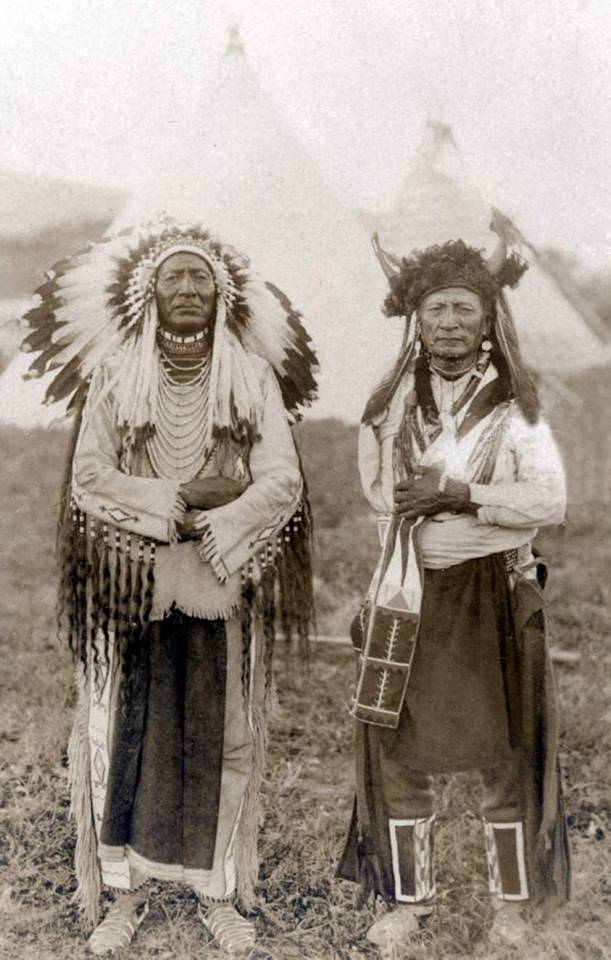
Chief Big Spring and Wolf Eagle (aka Buffalo Chief of the Blackfoot) stand in front of tipis ...
Date : 1930-1940
Big Spring, left, wearing war bonnet and traditional regalia, stands next to Wolf Eagle (aka Buffalo Chief of the Blackfoot) wearing buffalo horn headdress and traditional regalia. Tipis in background.Note by Dyck on verso "Big Spring Blackfoot."
Native Americans
Siksika Indians
McCracken Research Library, Buffalo Bill Center of the West
93 notes
·
View notes
Photo

Sikimutasi, Black Horse (Caballo Negro) y su esposa, Ichpi Kaki, Rib Woman (Mujer Costilla) de la Nación Siksika (Pies Negros). Archivos provinciales de Alberta, de los fondos de Harry Pollard, P59. Alrededor de 1910.
#blackfootindian#blackfoot tribe#blackfeet nation#blackfoot#blackfeet#natives#native#native american#Native America#Nativo#nativos#nativo americano#nativoamerica#Nativos Americanos#american indian#American Native#nativeamericans#american natives
3 notes
·
View notes